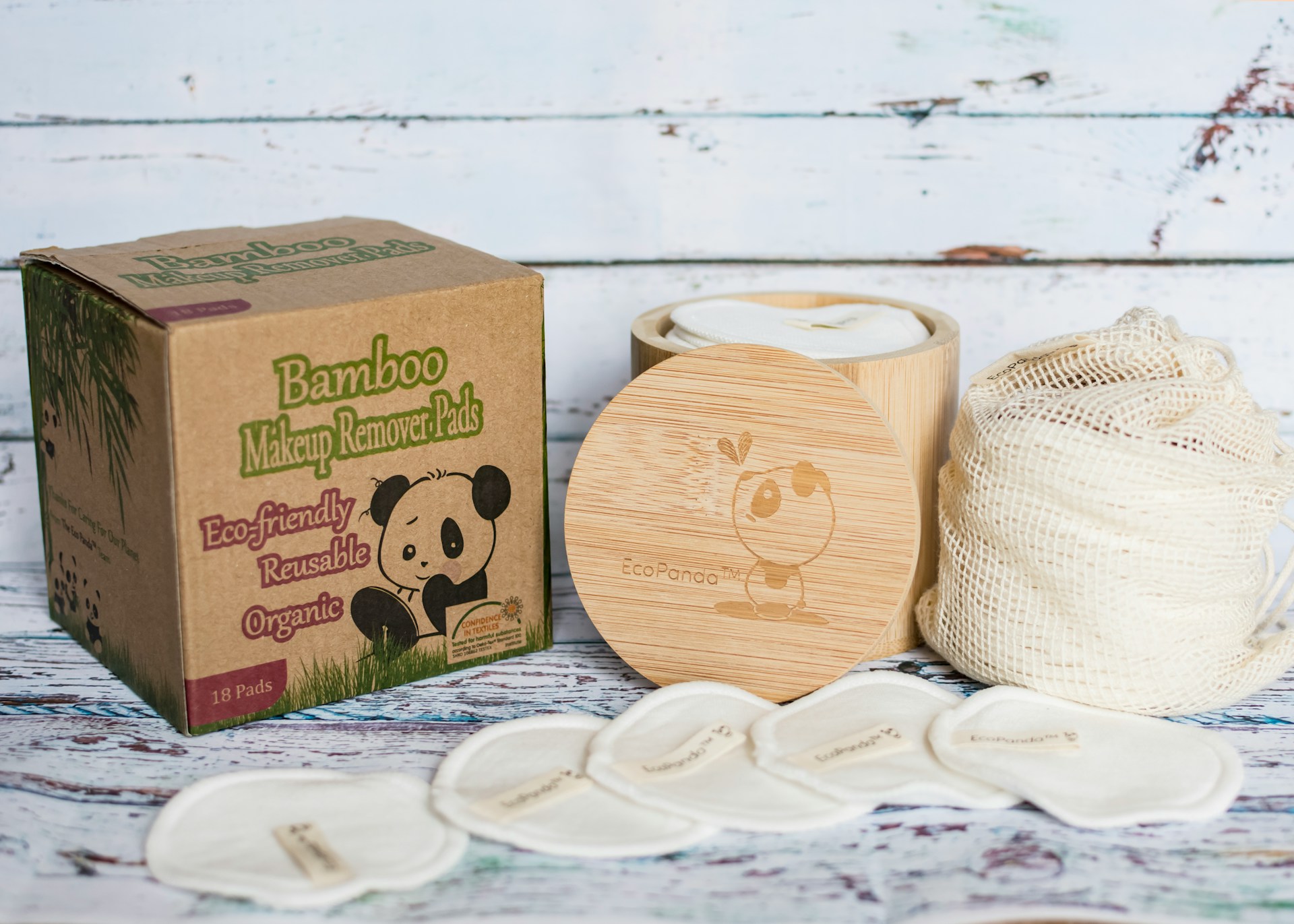
Top Tips for Sustainable Living: A Fun and Easy Guide to Going Green
Introduction
Hey there! If you've clicked on this blog, chances are you're interested in living a more sustainable lifestyle but aren't quite sure where to start. Trust me, I get it. The idea of going green can feel a bit overwhelming at first. With so many tips, tricks, and rules out there, it’s easy. to get lost in the eco-friendly jungle. But guess what? It doesn't have to be complicated or stressful. Living sustainably can be fun, rewarding, and even save you some cash!
In this guide, I’ll share my top tips for sustainable living—think of them as your green starter pack. I’ve personally tried and tested these tips, so I know they work. Plus, I’ll keep it light and easy, because making the planet a better place should never feel like a chore. Ready to dive in? Let’s go green together!

1. Start small and build momentum.
When I first decided to live more sustainably, I wanted to do everything at once—composting, solar panels, zero waste, you name it. However, I quickly realized that trying to overhaul my entire lifestyle in one go was a recipe for burnout. Instead, I started small, focusing on one change at a time. This not only made the process manageable but also allowed me to celebrate each little victory, which kept me motivated.
My Tip:
Begin with simple swaps, like using a reusable water bottle or shopping bag. Once these habits stick, move on to bigger changes like reducing food waste or minimizing single-use plastics. You’ll be surprised how quickly these small steps add up!
2. Embrace the "reuse" mentality.
One of the best ways to reduce waste is by reusing items instead of throwing them out. I’ve turned this into a bit of a game—how many ways can I repurpose something before it needs to be thrown away? For example, I reuse glass jars as storage containers for pantry items, and old T-shirts become cleaning rags.
My Tip:
Before you throw anything away, ask yourself if it has a second (or third) life. You’d be amazed at how creative you can get with reusing items around your home.
3. Cut Down on Single-Use Plastics
This one’s a biggie, and it’s something I’ve been passionate about. Single-use plastics are one of the biggest culprits when it comes to pollution, and cutting them out of your life can make a huge difference. Start by ditching plastic straws, utensils, and bags. Instead, opt for reusable versions—there are so many stylish and convenient options out there now.
My Tip:
Invest in a good-quality set of reusable items that you enjoy using. I’ve found that having a nice reusable water bottle or bamboo cutlery set makes me more likely to remember to bring them along.
4. Shop Local and Seasonal
I used to do all my grocery shopping at big supermarkets, not thinking about where my food came from. But then I discovered my local farmers' market, and it was a game-changer. Not only is the produce fresher and more flavorful, but it also supports local farmers and reduces the carbon footprint associated with transporting food over long distances.
My Tip:
Make a habit of shopping at farmers’ markets or local grocers that prioritize seasonal produce. Plus, it’s a fun weekend activity, and you might discover some new fruits and veggies you’ve never tried before!
5. Get into the habit of meal planning.
Meal planning is a win-win for both the planet and your wallet. By planning out your meals for the week, you can buy exactly what you need, which reduces food waste and saves money. I used to be terrible at this—I’d buy a bunch of groceries, only to let half of them go bad in the fridge. Now, I plan out my meals, make a list, and stick to it. It’s made a huge difference.
My Tip:
Try meal-prepping on Sundays. Cook a few big batches of meals that you can eat throughout the week. Not only will this save you time, but it’ll also help you avoid last-minute takeout, which often comes with a lot of unnecessary packaging.
6. Reduce Energy Consumption at Home
Cutting down on energy use doesn’t just help the planet—it also lowers your utility bills. I’ve made some simple changes around my house that have significantly reduced my energy. consumption. For example, I switched to LED light bulbs, unplugged electronics when they were not in use, and installed a programmable thermostat to better manage heating and cooling.
My Tip:
Get into the habit of turning off lights when you leave a room and unplugging devices that aren’t in use. It’s amazing how much energy these little changes can save over time.
7. Choose Sustainable Fashion
Fast fashion is one of the biggest environmental offenders, with millions of tons of clothing ending up in landfills every year. I’ve made a conscious effort to move away from fast fashion and instead choose sustainable or second-hand clothing. Thrift shopping has become one of my favorite pastimes. I love finding unique pieces that I know have a story behind them.
My Tip:
Consider if you truly need something new before making a purchase. If the answer is yes, try to buy from brands that prioritize sustainability or check out thrift stores and consignment shops.
8. Make Your Cleaning Products
This might sound a little intimidating, but making your cleaning products is super easy and fun! Plus, it’s a great way to reduce the number of harmful chemicals in your home. I started making my all-purpose cleaner with just vinegar, water, and a few drops of essential oil. It works just as well as store-bought cleaners, and I feel better knowing it’s non-toxic.
My Tip:
Start with simple recipes—there are tons online—and see what works best for you. You can make everything from glass cleaner to laundry detergent with just a few basic ingredients.
9. Get into gardening.
Gardening is one of the most rewarding, sustainable habits you can pick up. Whether you have a big backyard or just a small balcony, growing your herbs, veggies, or flowers is not only fun but also great for the environment. I started with a small herb garden in my kitchen and now have a thriving vegetable patch in my backyard.
My Tip:
Start small, especially if you’re new to gardening. Herbs like basil, mint, and rosemary are easy to grow and can be used in lots of different dishes. Plus, there’s nothing like the taste of fresh herbs you’ve grown yourself!
10. Reduce water waste
Water is a precious resource, and conserving it is key to sustainable living. I’ve made a few simple changes in my daily routine to reduce water waste. For example, I’ve cut down on shower time, use a water-saving showerhead, and only run the dishwasher and washing machine when they’re full.
My Tip:
Be mindful of how much water you’re using daily. Even small changes, like turning off the tap while brushing your teeth, can make a big difference over time.
11. Opt for public transport or carpooling.
Transportation is a major contributor to carbon emissions, so finding greener ways to get around is crucial. I’ve started using public transport more often, and when that’s not an option, I try to carpool with friends or family. Not only does this reduce my carbon footprint, but it’s also a great way to catch up with people.
My Tip:
If you can, try walking or biking for short trips. It’s good for the environment and your health!
12. Compost Your Food Scraps
Composting is a great technique to cut waste and give you garden soil that is full of nutrients. I was a little intimidated by the idea at first, but once I started, I found it surprisingly easy. Now, instead of tossing food scraps in the trash, I compost them, knowing they’ll turn into something beneficial for my plants.
My Tip:
If you’re new to composting, start with a small countertop compost bin. There are plenty of options that are both functional and stylish, so you can find one that fits your kitchen.
13. Practice conscious consumerism.
One of the most powerful things you can do as a consumer is to vote with your wallet. By choosing to buy from companies that prioritize sustainability, you’re supporting practices that are better for the planet. I always try to research brands before making a purchase, and I’m happy to pay a little extra for products that are ethically made.
My Tip:
Check for certifications like Fair Trade, organic, or B Corp. when shopping. These labels can help you identify products that are made with the planet in mind.
14. Educate yourself and others.
The more you know about sustainability, the easier it becomes to make informed decisions. I’ve found that educating myself about environmental issues has been incredibly empowering. Plus, sharing what I’ve learned with others has sparked some really interesting conversations and even inspired friends and family to make changes in their own lives.
My Tip:
Take some time to read books, watch documentaries, or follow sustainability blogs. You can do more with the knowledge you have.
15. Don’t Strive for Perfection—Aim for Progress
This may be the most crucial piece of advice of all. Sustainable living isn’t about being perfect; it’s about making better choices whenever you can. There have been plenty of times when I’ve forgotten my reusable bag or bought something with more packaging than I’d like, but I’ve learned not to beat myself up over it. Every small step counts, and as long as you’re moving in the right direction, you’re making a difference.
My Tip:
Celebrate your successes and learn from your mistakes. Remember, it’s a journey, not a race.

Conclusion
Sustainable living is all about making small, mindful changes that add up over time. It’s about being kinder to the planet, but also kinder to yourself. By starting with these tips, you’ll not only reduce your environmental impact but also find joy and satisfaction in living more consciously. Remember, it’s not about being perfect—it’s about making progress, one step at a time. So take a deep breath, have fun with it, and know that you’re making a difference.
FAQs
1. Is sustainable living expensive?
Not necessarily. While some sustainable products can be more costly upfront, they often save money in the long run. Plus, many sustainable practices, like reducing energy consumption or meal planning, actually help you save money.
2. How can I start living sustainably if I’m on a tight budget?
Start with simple, cost-effective changes like using reusable bags, cutting down on energy use, and buying secondhand. Remember, every little bit helps!
3. What if I don’t have access to things like farmers' markets or public transport?
Do what you can with what you have. If local options are limited, focus on reducing waste, conserving energy, and supporting sustainable brands online.
4. How do I stay motivated to live sustainably?
Set small, achievable goals and celebrate your progress. Educating yourself about the impact of your actions can also be a great motivator.
5. Can one person make a difference?
Absolutely! Every positive change you make contributes to a larger global impact. Also, your actions may encourage others to follow suit.
